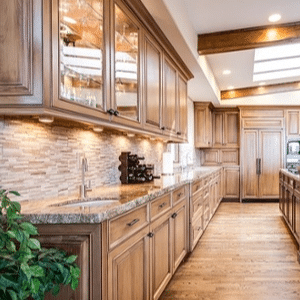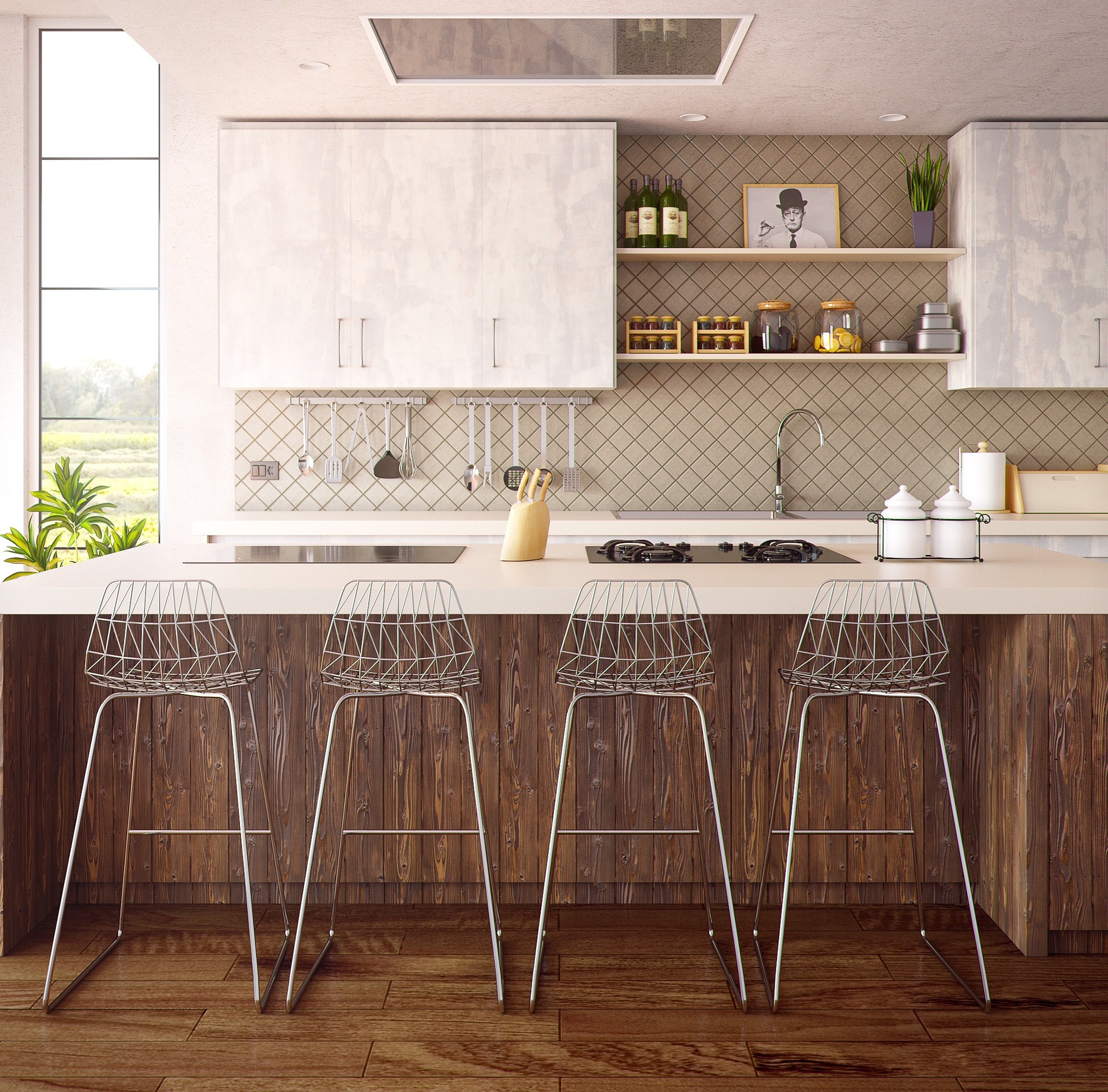Have A Busy Kitchen? Here Are the Three Most Durable Countertops

Are your countertops in constant use? Do your countertops face challenges like Thai Curries, Moroccan tajines, homemade sauces, bread dough, or subtly sinister situations like children with grape juice? If so, you’ll benefit from investing in durable countertops made of granite, quartzite or quartz. These are our picks for the three most durable types of countertops for your kitchen.
Durable natural and engineered stone countertops
Natural stone materials like granite and quartzite are dug from the Earth as large blocks and then sliced into slabs. They are formed under tremendous heat and pressure. As a result, the stone naturally resists damage from heat and chipping. These countertops are intended to last as long as the home, or at least until a homeowner changes their tastes regarding their décor.
Aside from sealing these countertops periodically, they do not require a tremendous amount of upkeep. Unlike choices like butcher block, tile or laminate, natural stone countertops will last indefinitely with proper care.
Busy kitchen countertop material #1: Granite
Complementing its beauty, granite is known for its durability. Its strength and resilience make it an excellent option for busy kitchens. On the Mohs scale, granite is rated as a 6-6.5, depending on the slab and different minerals found within it. Mohs is a rating system for mineral hardness and ranges from 1 to 10, with 1 being the softest and 10 being the hardest. To put this in perspective: diamonds, one the hardest natural occurring stones, is a 10 on the Mohs scale.
So, why should the Mohs scale matter to homeowners? The harder the stone, the tougher it will be to chip, crack or scratch! This is perfect for families who have kitchens that are the “heart of the home.”
Granite is such a tough material that you’re more likely to ruin your knife by cutting directly on the countertop than you are to chip the natural stone. For this reason, we always recommend using a cutting board, this way your countertops and kitchen cutlery are spared from damage.
Have you ever wondered why so many buildings use granite for floors and countertops, even in outdoor spaces? Granite countertops are UV-resistant and considered to be fairly weatherproof. Builders and homeowners alike choose granite for its ability to stand the test of time, even in the outdoor elements.
Busy kitchen countertop material #2: Quartzite
Quartzite is one of the most ornate natural stone choices. This stone features small quartz crystals that catch light, and sparkle in the sun. These glimmering crystals are actually made from sand grains. Quartz is made from sand that has undergone years of heat and compressing underground. This lengthy process not only creates that glittering sparkle, but eventually creates a dense and durable quartzite stone.
Quartzite is a 7 on the Mohs scale. However, even though it is a harder stone than granite, it’s actually more susceptible to staining. This is due to the different minerals formed in the stone that can vary between types of quartzite. To combat this, periodic re-sealing is recommended, depending on how much wear and tear your kitchen countertops receive.
Like granite, quartzite is durable for its UV-resistance and makes a great countertop option for bright kitchens with lots of natural light. It’s also ideal for outdoor patios, sunrooms and outdoor bars. For homeowners, this means you won’t have to worry about your countertops fading as much as other stones.

A beautiful kitchen featuring Quartz countertops
Busy kitchen countertop material #3: Quartz
Quartz is another popular countertop material for homeowners with busy kitchens. This stone requires substantially less maintenance than natural stone and has a very hard surface. This manufactured stone is a 7 on the Mohs scale, giving it the same hardness as quartzite.
This man-made stone does not require a sealant to be applied after installation. Unlike natural stone countertops, quartz remains durable against liquids and staining without a protective barrier. Quartz is naturally non-porous and stain-resistant. This is due to how quartz is manufactured. Quartz countertops are made by mixing natural stone with binders, usually resins and polymers. This is combined with approximately 90% of natural quartz and gives the countertop its ‘hard as rock’ property. As a result, quartz’s smooth surface does not trap or capture liquids. This quality can be alluring to homeowners who do not want the periodic upkeep of sealing their kitchen countertops.
Another benefit of using manufactured stone in your busy kitchen is its resistance to chipping and scratching. Homeowners can breathe a sigh of relief when the inexperienced sous chef enters the kitchen!
Although quartz is a durable countertop for inside the home, it is not recommended for outdoor use. This manufactured stone is not UV-resistant and can discolor or fade in direct sunlight over time. Granite and quartzite are better outdoor options.
Quartz is also not as heat resistant as granite and quartzite. Placing hot pots and pans is not recommended as it may lead to damage. Always use a trivet or other heat-resistant protection when placing hot objects on your quartz countertops.
Academy Marble & Granite carries quartz counters from manufacturers including Caesarstone Engineered Stone Surfaces, Cambria Engineered Stone Surfaces, European Alleanza Quartz©, and Cosentino© Quartz Countertops.
The kitchen is one of the busiest rooms in any home. If you’re ready to find out more about durable countertop options, the team at Academy Marble & Granite is ready to help you make your selection. Get an estimate for your next project by requesting a quote here.


